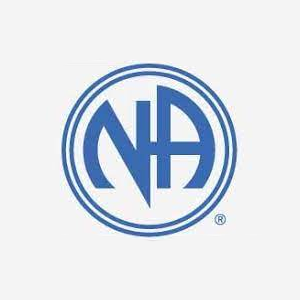Drug & Alcohol Rehab in St Helens

How Does Rehab Work?
Rehabilitation is the process that helps individuals in working towards restoring balance and well-being. Rehab focuses on addressing the patient holistically with individualised therapy aimed at resolving addictive behaviours. With guidance from a professional therapist or counsellor, coping strategies are taught and individuals can access much-needed support. Strategies deal with relapse prevention and clients can be assigned to an extended inpatient programme or move to an outpatient programme. With inpatient rehab (residential rehab), individuals will reside at the rehab centre for the duration of treatment. Outpatient services are an alternative option in which clients will attend daily/weekly sessions for therapy but will not attend a full-time programme. There are both free and paid outpatient services available within the UK.
What Happens During Residential Rehab?
The choice to seek out rehab for drug and alcohol addiction is a courageous one and will be supported with individualised rehabilitation services. We provide a breakdown of what you can expect during the process of drug and alcohol rehab.
Prior to entering rehab, every individual will be assessed by a medical professional. The aim is to create a treatment plan suited to individual health and wellness needs. This is particularly important for those with a history of addiction and comorbid mental conditions including depression, anxiety or bipolar disorder.
The next stage of a rehab programme is detox. Detoxification from substances requires the removal of the drug or alcohol from the body, typically over a period of time that limits withdrawal symptoms. Detox should ideally be monitored professionally to assist those with withdrawal symptoms. When the substance is removed from your system, the next phase of treatment begins (therapy).
Therapy is an important part of the rehab process and every aspect of treatment should be tailored to address individual backgrounds, addictions, and circumstances. Interventions can range from private counselling and cognitive behavioural therapy to developing coping strategies, skills, and attending group meetings.
1. Assessment

Before treatment can be delivered, a health assessment is conducted. This involves an in-depth look at individual medical history, drug or alcohol use, and the presence of mental health disorders. Patients can be accommodated with a medical assessment by phone. An admissions team will be responsible for the telephone assessment to decide on the best form of therapy. Along with determining a treatment plan, the admissions team or medical professional will have reliable information to facilitate the detox process.
Should you or someone you love require support to overcome dependence, it starts with an individual assessment. The purpose is to determine the right therapeutic approach for the management of addictions and possible comorbidities.
2. Detox

Detox is a period in which drugs and alcohol are no longer ingested and cleared from the body. It is a process that is best monitored by medical staff in a rehabilitation facility.
The reason medical detoxification from substances is advised is owed to the difficulties and the nature of withdrawal symptoms that may occur during this time. Without reliance on a professional service and medical attention, the risk of relapsing is increased. Individuals who receive detox and an assessment will be required to participate in a therapeutic programme that entails residential rehab or outpatient programmes.
3. Therapy

Therapy begins when the body is cleared of drugs including alcohol. The option of being assigned to an inpatient or an outpatient service will depend on the individual assessment, budget and life commitments. Therapy that is offered in treatment ranges from individual counselling with a therapist, the attendance of group therapy, and emphasis on developing positive coping mechanisms as well as skills.
Step by Step Process for Residential Rehab
To understand your medical and mental health history.
Arrange a suitable date to begin your journey to recovery.
Begin the managed withdrawal process from substances including alcohol.
To understand the root cause of addiction and how to overcome it.
Aftercare is provided to help manage the risk of relapse.
To help heal the wounds that addictive behaviour has caused others.
Find your Nearest Rehab Centre near St Helens
The nearest rehab centre is Substance Rehabilitation.
Address: Substance Rehabilitation, 45 Belmont Dr, Liverpool L6 7UW, United Kingdom
Call 0333 4444 432 to discuss your alcohol or drug rehab requirements and any other questions you may have about the process of residential rehab.
Outpatient Addiction Services in St Helens
When you look for a treatment programme, it will be influenced by the nature of the addiction and your budget requirements. Individuals who enter an inpatient or outpatient programme will need to give their full commitment to get the most out of treatment. Let’s determine the strengths and weaknesses of outpatient services compared to residential treatment.
When you progress into an outpatient programme, you will be required to meet with a therapist, support counsellor, or group worker once or twice every week. Rather than stay away from home, you can continue to attend work and care for your family while you receive therapy for dependence.
Private Outpatient services include therapy with counselling sessions delivered by a therapist/counsellor. Sessions can last between 60 and 90 minutes. Free alternatives do exist via one of the many reputable charities in the UK (Turning Point), but it does not provide the same individualised care that private services provide.
NHS Free addiction services in St Helens

80 Corporation Street St Helens Merseyside WA10 1UQ
WebsiteThe Benefits of Outpatient Services
Private outpatient plans are tailored to the individual’s needs. The purpose is to provide optimal standards of support and intervention for recovery from dependence. – Outpatient care is considered flexible because individuals with family/work commitments can continue to manage these areas of life while attending weekly or twice-weekly counselling sessions. – It is also more affordable compared to inpatient rehab services.
The Challenges of Outpatient Services
While outpatient services play a vital role in accessible addiction treatment, it is also associated with a higher relapse potential. While free outpatient services do exist through the NHS or UK based charities, waiting times are to be expected and treatment tends to be more generic.

How Much Does Rehab Services Cost in St Helens?
You can expect to pay between £1500 – £4000 per week for residential rehab. If you cannot afford a private addiction plan, you can rely on free and more affordable recovery options to deal with your addiction issues. There are a number of charities that assist those struggling with free and affordable services throughout the UK.
The NHS and charities such as Turning Point provide free addiction treatment services for those struggling with substance and alcohol addiction. It is important to note that Turning Point requires a self-referral to access treatment. You can also find free support groups provided by Alcoholics Anonymous, Cocaine Anonymous, and Narcotics Anonymous very useful for long-term recovery from addiction.
Support Groups in St Helens

Salvation Army meeting Group
The Salvation Army 1 Phoenix Brow St Helens Merseyside WA9 1SA

Sunday St Helen's Group
St Marks Church 160 North Road St Helens Merseyside WA10 2TZ

St Helens Multi-Mtg
Cross Lane United Church, 11 Cross Ln, Newton-Le-Willows WA12 9PT
The Pros and Cons of Seeking Treatment in Your Local Area
Pros
1. You are familiar with the area which may provide a layer of comfort/safety.
2. Loved ones can easily travel to visit or are close by.
3. You could save on the costs of travelling long distances for addiction treatment, or free services may only be offered in your home town.
Cons
1. A local environment means access to drug dealers or other triggers. This is more of an issue if you choose outpatient programmes.
2. Failing to consider locations outside your area could equate to a missed opportunities for more valuable and rewarding programmes.
3. Addiction treatment programmes that are close by don’t always provide the best standard of rehab.
If you are unsure of how to look for a rehab service you can trust, consider the CQC. The CQC website offers listings of rehabilitation services and organisations that are ranked according to the standard of its services.
